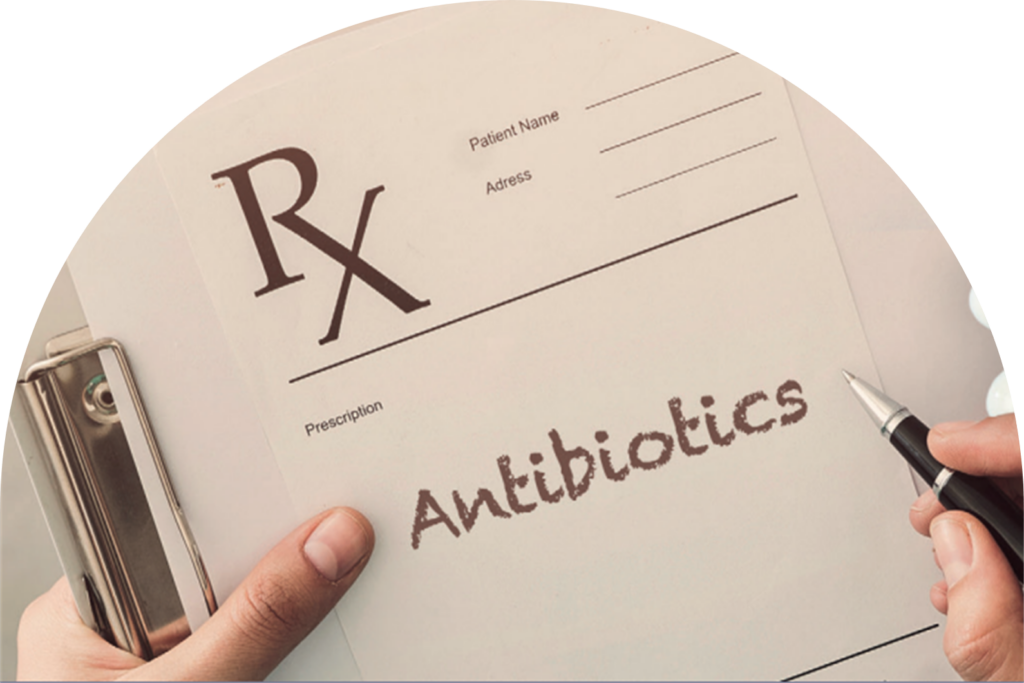Antibiotics for Dental Pain and Swelling:

What You Need to Know
At Parkside Dental, we prioritize your health and aim to provide accurate, patient-friendly information about dental care.
When it comes to managing dental pain and swelling, antibiotics are not always the solution. This page will guide you through the American Dental Association (ADA) guidelines, helping you make informed decisions about your dental health.
Why Antibiotics Aren’t Always Necessary
Most tooth infections related to the pulp or surrounding areas (pulpal or periapical conditions) don’t require antibiotics. Instead, effective dental treatment combined with over-the-counter pain relievers like acetaminophen and ibuprofen often provides the best care.
Key Points from the ADA Guidelines:
Primary Treatment: Dental pain and swelling should primarily be managed through dental procedures rather than antibiotics.
Pain Relief: Over-the-counter medications are often sufficient to manage discomfort while receiving treatment.
For more information, read the full ADA Statement or explore the detailed JADA Article.
The Importance of Responsible Antibiotic Use
Antibiotics play a vital role in treating bacterial infections, but their overuse can lead to significant risks:
Helping Antibiotics Work:
Treating the Source: Many dental infections can be addressed directly in the dental office.
Consult Your Dentist: Use antibiotics only when prescribed for specific conditions, especially if symptoms like fever suggest the infection has spread.
Avoid Sharing Medications: Antibiotics prescribed for someone else may not work for you and can cause harmful side effects.
Risks of Antibiotic Use:
Side Effects: Antibiotics can cause issues like nausea, diarrhea, or yeast infections.
Allergic Reactions: These can range from mild rashes to severe reactions.
Antibiotic Resistance: Overuse or misuse can lead to bacteria becoming resistant, making future infections harder to treat.
What about antibiotic prophylaxis?
Antibiotic prophylaxis refers to taking antibiotics before certain dental treatments to prevent hypothetical infection. This is recommended for specific medical conditions where bacteria entering the bloodstream could lead to hypothetically severe complications.
Who May Benefit?
Certain Heart Conditions
The American Heart Association recommends antibiotic prophylaxis for individuals with:
- Artificial or repaired heart valves.
- A history of infective endocarditis (IE).
- Specific congenital heart defects, such as:
- Unrepaired or partially repaired cyanotic congenital heart disease.
- Completely repaired heart defects within six months of surgery.
- Repaired defects with residual issues near a prosthetic device.
What about Artificial joints?
NO LONGER ROUTINELY RECOMMENDED
While not routinely recommended by the ADA, patients with joint replacements and weakened immune systems(e.g., diabetes, cancer, or those on chemotherapy) should consult their dentist and orthopedic surgeon.
Why Isn’t It for Everyone?
- Post-treatment infections are extraordinarily rare.
- Routine activities like brushing your teeth or chewing food can cause bacteria to enter the bloodstream, just like some dental treatments, and we don’t recommend taking antibiotics prior to routine tooth brushing.
- The human immune system is typically strong enough to manage these small exposures without any issues.
- Antibiotics carry serious risks. There’s a reason antibiotics are not available over the counter.
For any questions or concerns, don’t hesitate to contact us at Parkside Dental. We’re here to help you make informed decisions about your dental care.
